It is July 10, 2020. A 3-month pandemic is behind us. A month to return to normalcy. The 1st round of presidential elections is also behind us. Candidates go head to head. In two days 2nd round of elections.
It is a time of decisions and choices for many of us. We need to answer the following questions:
- Were the leaders’ decisions in our company appropriate?
- Were we as a company prepared financially, communicatively, mentally, strategically for such turbulences?
- Did the government and president support your business enough during and after the pandemic?
- Will the government and the president support you and others in an appropriate way?
Once we have verified it, it’s time for the next questions:
- How to prepare for a second round of the pandemic this fall?
- How to prepare for crisis 2 if it comes in the second half of the year and in 2021?
- Will the economy take off or do you have to fire people?
- How to use the present reality to develop the company? What to bet on?
- What to invest in considering all these variables?
- Who is going to be the president? What style of governance do we want? What vision of Poland do we accept?
It’s a decision time, an election time. Decide wisely.
You might say: Watch carefully. Decide carefully.
You can also follow the principle: no matter what happens, keep garage vigor and corporate rigor.
Make wise decisions both in your choices and in your business.
Polish reality
In order to make you reflect and help you make decisions, in April 2020, as part of the Research Center of the Institute for Change Leaders, we conducted a study on almost half a thousand Poles, examining their financial and emotional situation: Report
To know more about Polish business and leaders’ decisions, in May 2020 our Research Center invited 82 leaders from many industries to complete a survey on their financial and business situation. They can be divided into two groups.
The first were the owners and / or management of production and service companies who could transfer some of their employees’ tasks to the Internet and therefore continue to work and earn money – although many of them are definitely much less than before. The second group includes representatives of the tourism industry who simply need customers in the company to continue to function.
Although at least restaurateurs could still try to save themselves a little by delivering food ordered by customers online or by phone, many potential recipients of this service were simply afraid of coronavirus infection and therefore did not use this form of supply.
The crisis caused entrepreneurs, mainly from the production industry, to lose many previously planned orders. However, there are those who made a fortune on cleaning products, garden furniture, selling flour products that were bought in enormous quantities.
Some reported liquidity problems and had their spending frozen, and many lost large international orders that would not be recovered in the coming years due to the closure of borders. Others, on the other hand, invested as their competitors were weakening.
The past period in business was not clear. Pasta producers had to limit the multitude of types in order to be able to produce the most popular pasta. The demand was huge. Success? Maybe so, but the second half of the year could be related to a decline as many customers have purchased large amounts of these products. They must consume them. So they won’t buy them for a while.
The crisis is not clear.
The period of the pandemic was a trial moment for the entire teams of the surveyed companies, from the warehouse worker to the management board. Currently, together with managers and decision-makers, we are looking for a way to reorganize companies’ strategies or shorten the decision-making process of transactions with clients.
On the other hand, together with the sales and marketing departments, as the Institute of Change Leaders, we are looking for ways to develop sales more effectively, overcoming the objections and reservations of existing customers, which appear more often than before COVID19. Mainly those related to the price of a product or service, which was built for many years on the basis of, for example, the concept of sale based on value, ceased to be of such importance.
It turned out that the previously developed processes or customer loyalty management will bring long-term and, most importantly, profitable relationships. However, from the point of view of cash flow, it is a process that will affect corporate finances probably only in the third or fourth quarter (depending on the industry, receivables and liabilities rotation cycles are characterized by different weekly or monthly intervals).
The decision of the Polish government to close shopping facilities over 2,000 sq m sqm, all bars, restaurants and entertainment establishments meant that the society undergoing forced isolation began to look for an opportunity to sell goods or services on the Internet.
As noted by Kate Bednarska, image specialist on linkedin and social media: The coronavirus caused that virtually all industries, including those less obvious, such as hotels (showing films from renovation, repair, modernization – to maintain a relationship with the customer) and gastronomy, moved to the online world. Nobody is surprised today by restaurateurs who cook live in social media channels or the heads of the largest organizations managing agile processes in front of their computers at home, sometimes hundreds of kilometers away from the company’s headquarters.
We started life in the “customer era,” and it is customer centricity that should be the common pattern of any reorganized business model. In the coming years, the best will win the battle for clients. Enterprises which, in addition to very good quality products and services, also have a thorough knowledge of the needs, expectations of the target group or their preferences.
Changes are necessary not only in organizational and sales processes or customer approach, but above all at the level of changing the mindset of managers and leaders. The roles of leaders and the competences that should lead them are including .: Greater flexibility, versatility, creativity or technological and analytical approach to solutions that will not only improve the functioning of companies, but also contribute in a measurable way to ensuring that customers receive the products and services they expect. The day of digital transformation and teaching a smooth transition to such a business model is one of the goals of the Institute for the coming months.
Changes, changes, changes, recession
During the economic freeze caused by the declaration of the coronavirus pandemic, the Institute for Change Leaders conducted a statistical survey to assess how Polish business is coping with survival in these difficult times. Entrepreneurs struggled with a whole mood swing for several weeks.
From very positive to depressive states, what will it happen next and where is the world going? There were answers about the chances for enterprises in the case of good preparation, with the simultaneous fear of the time in which they will have to recover from the state of “stopping” production or providing services. Many believe that g economically the whole world will go back 2-3 years. The effects of such a global shutdown of the economy for such a long time are enormous, after such a “freezing”, the bankruptcy of a large part of entities, which is a consequence of, for example, closing borders – that is, export exchange with the EU, China or the USA. The coronavirus has created a “consumption quarantine” and will have a huge cultural and economic impact.
A global outbreak will lead to a “global recession of an unprecedented scale” but will eventually allow humanity to reset its values.
Public money will end one day, banks will stop lending to entities that have not taken care of financial liquidity, justifying it with inadequate scoring and high risk. Hotel industry experts confirm that in the fall we will be able to observe the beginning of a long crisis and that society will switch to a modest life.
As Puls Biznesu writes, “The greatest recession of the Third Republic of Poland is slowly becoming a fact”. Experts from Emmerson Evaluation indicate that hotels that will manage to stay in the market in the long run will have to follow the latest technological trends and amenities that will be increasingly important for their competitiveness on the market.
For many managers of this sector it is a good time to introduce modern technologies and sales strategies in their facilities, such as online reservations or the so-called direct booking, which combines communication with potential guests, sales and the booking process through various on-line communication channels – emphasize the authors of the study.
Business Insider notes that extremely negative analyzes indicate that we need to prepare to scrub the bottom. “ This would mean a huge increase in debt of more than PLN 1.5 trillion, ie almost 70 percent. GDP . This is an extreme scenario, but it cannot be ruled out, says Sławomir Dudek. – The government should also be ready for such a situation. Consolidation of public finances from the deficit level of over 10%. GDP will be a big challenge. It will not be possible without radical actions, otherwise the debt will increase as a result of the “snowball”, but today it is still only a scenario – he adds. ”
Strategic thinking in business should be based on the awareness of the worst-case scenario, with a positive outlook on actions that need to be taken as an entrepreneur.
I have a saying in our Institute: Running a business without proper knowledge is like playing Russian roulette with eyes closed, without knowing it was a single-round pistol.
Results of the survey of 82 Polish entrepreneurs
In May 2020, the financial situation of our respondents was as follows (1-very bad, 5 very good)
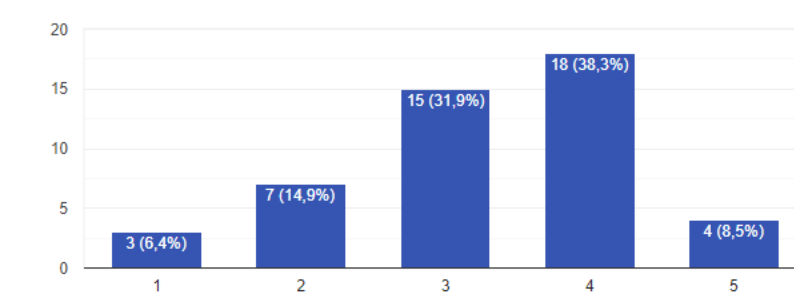
In the group of hotels and restaurants, the reality was different:

The level of savings in companies (production, IT, education, consulting) – (1 – very low, 5 – very high)

Savings in hotels and restaurants:
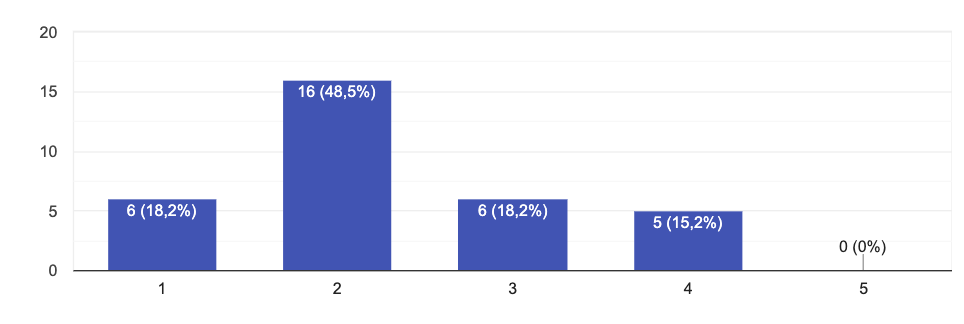
For how many months did the companies have savings in May 2020?
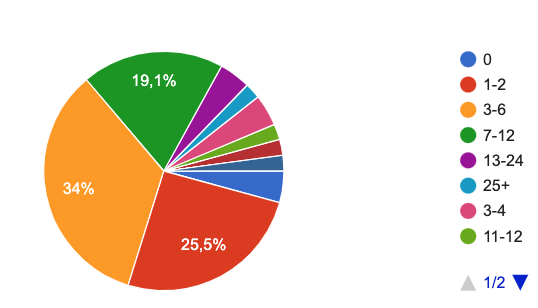
For how many months did hotels and restaurants have savings in May 2020?
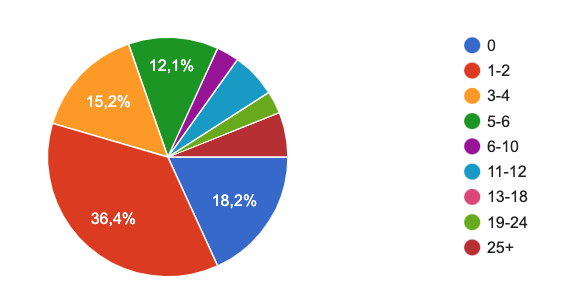
Hotels and restaurants have had significantly less savings. Only 12% had cash capital for 5-6 months. As many as 18% of hotels and restaurants did not have any security, while 4.2% of companies from the IT, production and service sectors.
Looking at these results and talking to the leaders of many companies, we can draw two key business conclusions that are both trivial and legitimate:
- diversify sources of income – it is not easy for many entrepreneurs. The more you focus on your niche, the better the results. However, over-focusing on one tunnel has serious consequences.
- increase the level of savings – a much higher% of your revenues, save your profits to be ready for times of decline.
Significant differences in sentiment can be seen with the question “ Do you think the company will recover from the crisis?
Companies:
As many as 55.1% of companies believe that they can rather manage, they see opportunities for themselves. Only 24.2% of hotel and restaurant leaders share the opinion. 30.6% of companies definitely believe that they will grow in crisis. 12.1% of hotels and restaurants have decided to close their businesses. 24.2% of hotels and restaurants believe that without government support, the EU will not survive.
How do companies rate state and government support?
According to companies (1 – very bad, 5 very good)

By hotels and restaurants

On the one hand, our observations show that an ambitious man in business is rarely satisfied with what he achieves and gets. On the other hand, the vast majority of respondents have a negative opinion of the state’s support. This is worrying because the behind-the-scenes reports from an increasing number of large and medium-sized businesses indicate that mass layoffs are expected during the summer holidays and from September onwards.
In May it was still relatively good:
As many as 61.7% of companies did not lay off employees. 17% made 10-30% of the dismissals.
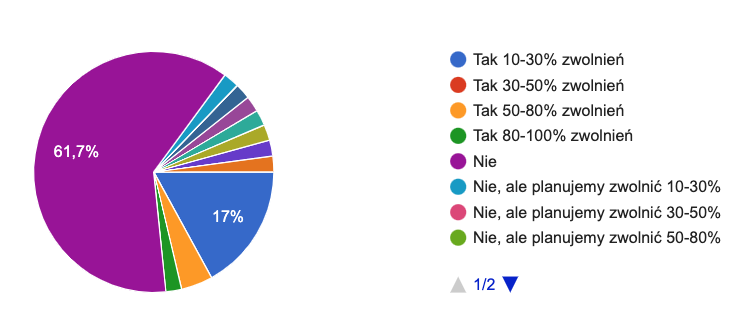
It was worse in hotels and restaurants, but it was not a tragic picture. Although 9.1% made layoffs at the level of 80-100%.
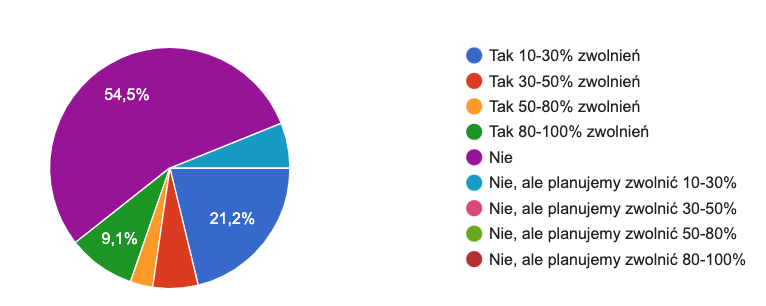
We asked entrepreneurs what actions they had taken during the pandemic. Here are their answers
- We have invested in training.
- Our Medical Center provided services at all times.
- Much of the transition to online customer service. Greater media coverage. Investment in training and purchase of appropriate tools.
- I took advantage of the fact that the world has moved online and I have intensively taken care of building the image and broadening the knowledge of the company among my clients.
- We have intensified the acquisition of new customers, we prioritize certain elements of the offer over others, we have increased sales.
- Shifting the burden of work to remote forms in 90% of the total activity.
- Limiting the working hours of the Medical Center, transferring some training courses to the Internet.
- Cutting costs, trying to reduce office space – we are convinced to work remotely.
- Clash and increase in marketing budgets, online product release. We have occupied the resulting void.
- Remote work, motivation. In my opinion, they worked.
- More promotion of essential products for the public during the pandemic.
- There was no such need
- Process digitization. There are effects.
- Scheduling visits, visits only necessary, 1-on-1 meeting, no more people than government recommendations in the waiting room.
- Change work formula.
- Reduction of jobs, reduction of salaries, protection of current income, dedicated solutions for new customers.
- Fight the epidemic with a full arsenal of resources.
- Cost reduction.
- Our changes did not work.
- Changing the way you sell, yes – sales increase.
- Shifting the business to selling books instead of courses and postponing courses to future dates including holidays (which were previously a dead season).
- We’ve moved employees to better-performing group companies. We tried to find alternative employment for our employees with our clients / contractors.
We asked hotels and restaurants about the same:
- Price cut, advertising aimed at Polish tourists, ozonation, decontamination, discounts for health care.
- Attempting to change industries, trying to receive support, funding, low-interest loans.
- Payment stopped.
- Lowering costs, postponing payment of liabilities, applications for aid and co-financing, maintaining readiness to provide services.
- Limiting the hotel’s operations to a minimum, sending part of the crew to stopovers, reducing the working time and remuneration of other employees to 80%, optimization of fixed and variable costs.
- We applied for help from the Crisis Shield.
- We are a small object in the Old Town. The fact that the facility is maintenance-free (electronic locks) means that we see it as an opportunity.
- Take-away restaurant – previously only stationary. It did not bring much financial gain.
- We have submitted all requests for contracts of mandate and employment contracts to ZUS and PUP.
- Customize the offer according to the guidelines.
- We started to take-out, but it’s a drop in the ocean.
- Takeaway, lower prices. Weak effect.
- Hotel closed.
- Take-away dishes, but a drop in a target sea.
- We have introduced the sale of bread with delivery to the door. Unfortunately, there was no interest in the idea.
- Grant applications submitted. We haven’t got it yet.
 0
0 Hotels and restaurants
 1
1 Do you think the company will recover from the crisis?
Companies
 2
2 Hotels, restaurants:
 3
3 How do you rate your energy and well-being?
(1 – very low, 5 – very high)
Business owners
 4
4 Hotel and restaurant owners
 5
5 How would you rate your stress level?
(1 – very high, 5 – very easy)
 6
6 Hotel and restaurant owners
 7
7 How do you rate your own emotional handling of change, chaos and crisis?
(1 – very bad, 5 very good)
Business owners
 8
8 Hotel and restaurant owners
 9
9 Conclusions and decisions
Taking into account the results and interviews with entrepreneurs, we can see that many of them see opportunities in every, even the most difficult, situation. Of course, it depends on the industry. Some are fortunate enough to be in an industry that is either 70-90% resistant to these types of crises, or even benefits from market perturbations.
For those who have severely suffered a drop in income, the conclusion is both difficult and important: either choose a different industry in the coming years or add a second company in the industry to your portfolio that will grow in times of change.
It’s easy to say, of course, hard to do. However, from the perspective of wise strategic thinking, this is the only way. You can of course be attached to what we know and try your hand at receiving grants. This is one of the possibilities. The question is whether the best.
This is why we created the blog you are reading at the Institute of Change Leaders, we are about to launch the 3rd season of Leadership Podcast, we run the CVP Business School, to support company leaders in discovering the best way for their business. Many years of work of our experts and advisers with companies shows that entrepreneurs subjected to the creative and strategic process sooner or later find ideas that, despite previous crises, are a source of successes that were not even dreamed of before.
It sounds lofty, but it is a fact. Crises for entrepreneurs are meant to look at reality differently, to stop being attached to what has been, to understand the new rules of the game. It often requires an inner transformation of the leader. Changes in his worldview, breaking with his habits, existing connections and patterns.
It is not easy. It’s not fast. But it is the basis of mature entrepreneurial thinking. Continuous education is always the answer. If we do not have financial background – our own, investor, government, then what do we have? With his head that can create extraordinary ideas.
If you are looking for inspiration, we encourage you to finally take a look at the graphics, which are proprietary business models in the Change Value Process method. Thanks to the visual presentation of mechanisms, we inspire our clients to look at their businesses more widely, so that they notice what areas they should take care of in order to survive or, most importantly, that they build a competitive advantage, a strong brand, innovation and increase revenues and profits.
Each model needs to be embedded in the real reality of the company. Each model needs to be discussed to better understand it. We hope that the graphics below will inspire thoughts and decisions that will build your company’s business position.
Change Value Process and CVP Intelligence 3
CVP is a change management methodology in the area of company strategy and in the personal area. This is the only methodology that approaches change in such a comprehensive way: people and companies. CVP stands for strategic psychology – that is, transferring psychology to business and business mechanisms to psychology. It is an integral view of a man and a company.
In CVP we say that 3 Intelligences are key: Emotional, Social, Business:
 0
0
And also in CVP, 3 key areas are key: Mentality, Communication, Strategy, which results in several key areas of activities with companies:
 1
1
Stages of Market Development according to CVP
Every market is evolving. Sometimes the whole world changes at a similar point in time, sometimes it is only industry-specific change. It is crucial to know at what stage we are in the context of the changes around us, and thus to know what to focus on in the company’s development in the coming years.
 2
2
Integral Business Model according to CVP
Understanding the multidimensionality of business is the foundation of development. Neglecting any element is painful.
 3
3
13 strategic levels according to CVP
 4
4
